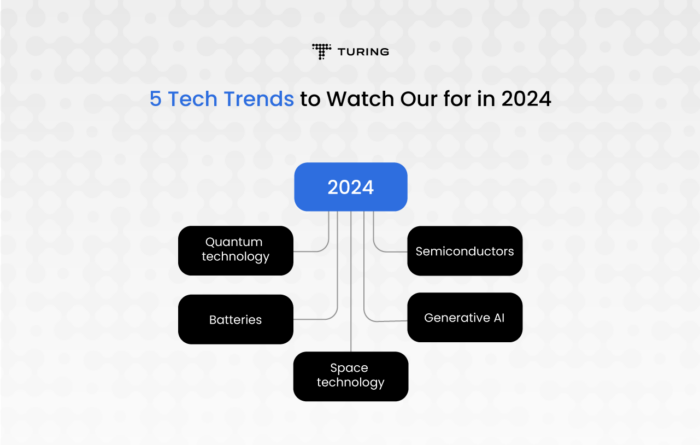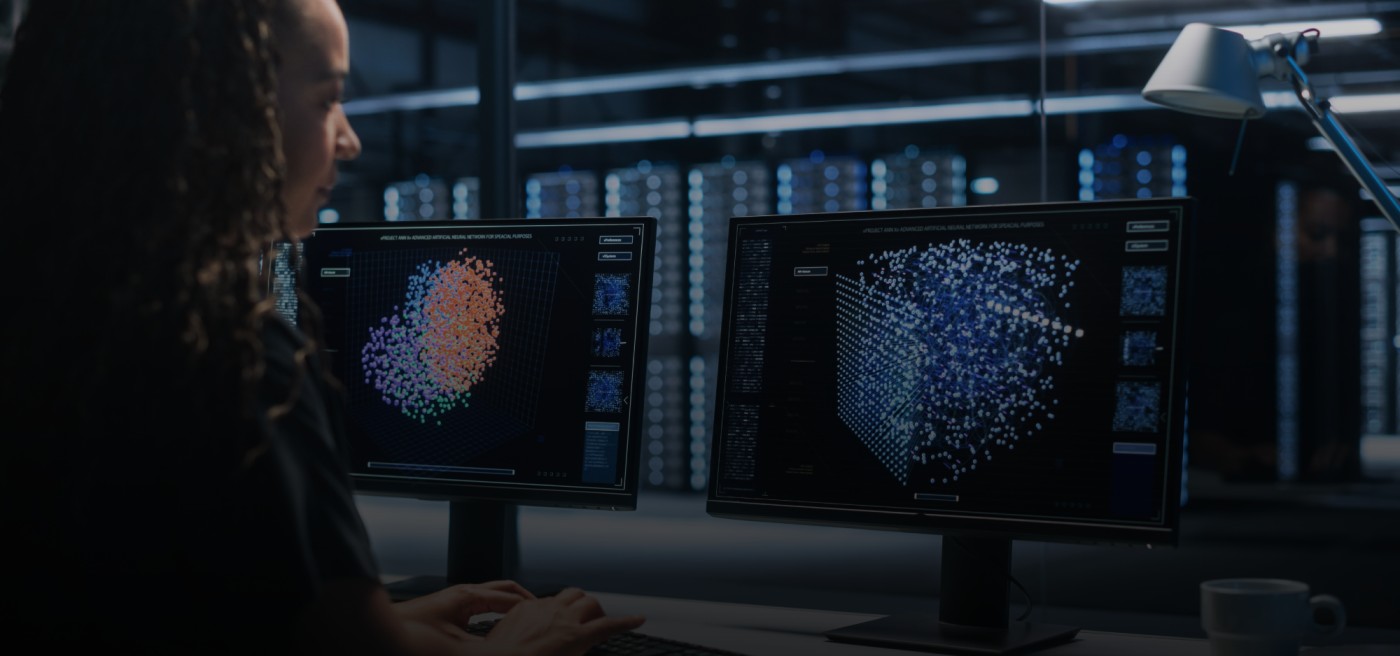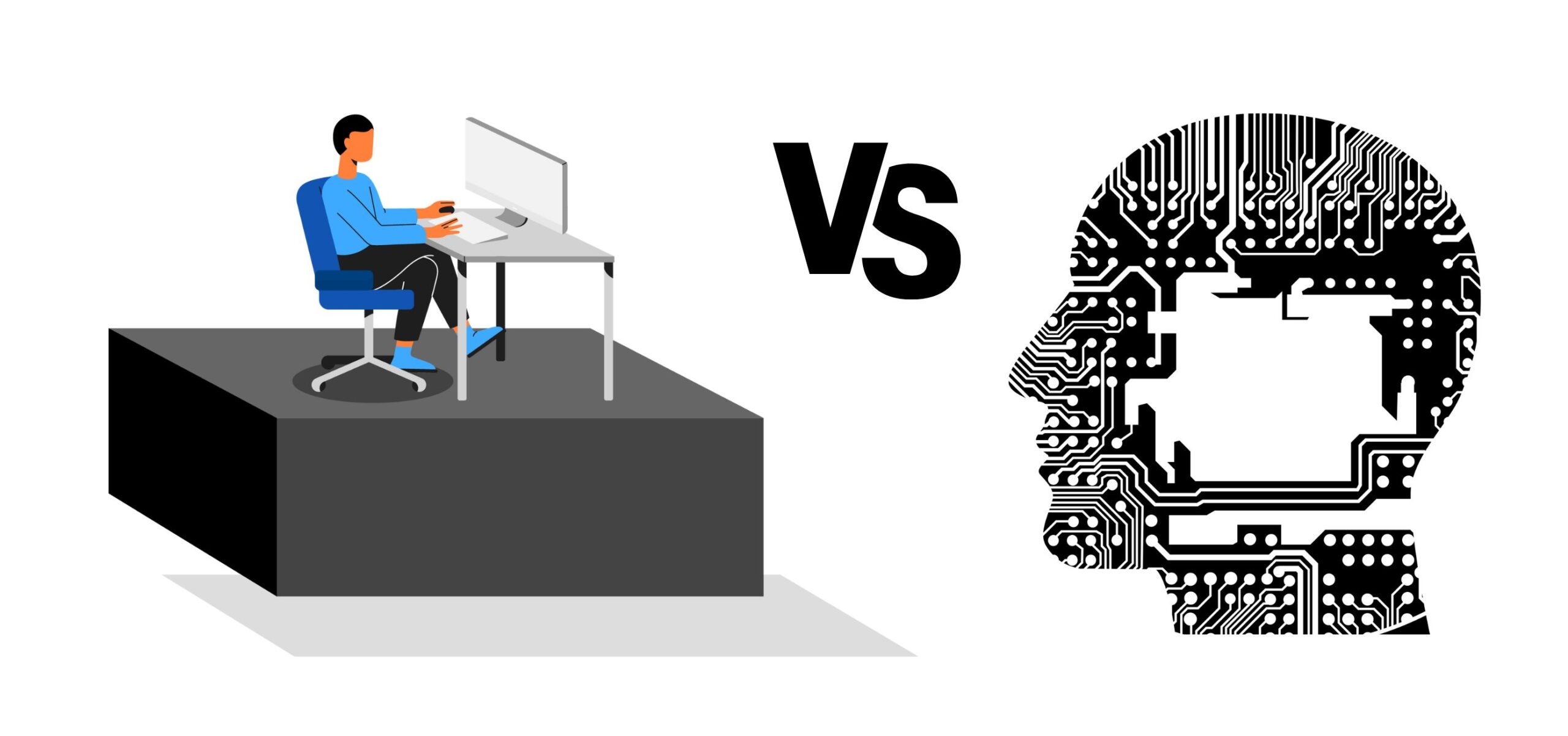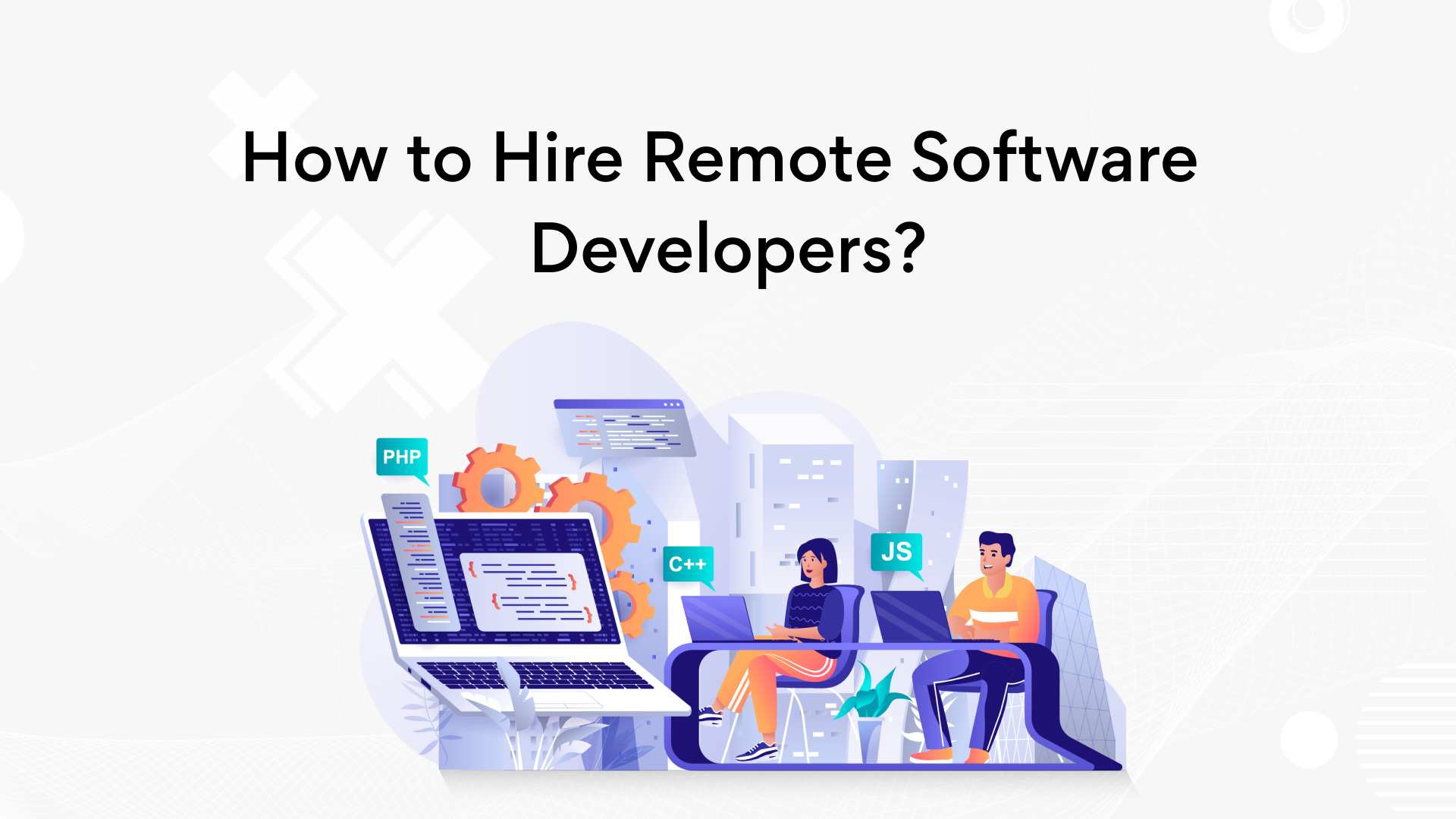Five Tech Trends to Watch Out for in 2024
What are tech trends 2024 all about? Last year, generative AI was all the buzz worldwide, and while AI will continue to be a highly discussed topic this year, other emerging tech trends are expected to play a pivotal role in solving today’s most pressing challenges for the world. Based on a recent article* by Capgemini, this blog post shares five technology trends that will significantly influence business and technology decisions over the coming years. Let’s get started.

Tech Trends 2024
1. Quantum technology
One cannot miss out on quantum technology when discussing tech trends 2024. Innovations in computing must be met with even better innovations in digital defense systems. Today, the world is leveraging AI and machine learning (ML) for threat detection and cyber security. Governments and companies alike are rapidly adopting a zero-trust security model based on the principle “never trust, always verify” to bolster digital defense.
However, developments in quantum computing have given rise to new threats that may make existing encryption standards like RSA and ECC useless. Therefore, the development of quantum-resistant algorithms is becoming an urgent need for maintaining data privacy and security.
“In the U.S., the standard for “post-quantum cryptography” (PQC), i.e., encryption algorithms believed to be resistant to quantum attacks, will be issued in 2024 by the National Institute of Standards and Technology. As the Quantum Computing Cybersecurity Preparedness Act requires public and private organizations supplying the U.S. government to be ready to migrate to PQC within a year after the NIST standards are released, this topic is bound to make its way into boardroom conversations in 2024,” mentions the article.
This development will likely overturn cybersecurity standards worldwide. It will also impact global business leaders as companies initiate their quantum transition.
As one of the most important tech trends in 2024, the global quantum computing market is set to grow at a compound annual growth rate (CAGR) of 28.8 percent in the forecast period of 2024–2032 to attain a value of approximately US$8.2 billion by 2032.
2. Semiconductors
As one of the most traded goods in the world, semiconductors are an important facilitator of digital transformation. Moore’s law states that the number of transistors on a microchip doubles every two years, though the cost of computers is halved. However, is this theory reaching its end?
Studies predict otherwise. Microchips will soon measure no more than 2 nanometers, and transistors will be no bigger than a bunch of atoms. But as we appear to be approaching the physical limit of chip miniaturization, chiplets will see notable advancements in 3D chip stacking and innovations in material science and lithography this year.
A speedy digital transformation is underway—worldwide semiconductor revenue is expected to grow by 17 percent in 2024, reaching $624 billion. This transformation, driven by digitally connected objects, from smartphones to e-vehicles to data centers and telecoms, will soon dominate industries globally.
These advances will bring about tangible shifts in the semiconductor industry, with new gigafactories, business models, regulations, and foundry services developing in 2024.
3. Batteries
Next on the list of tech trends 2024 is batteries. Today, every country wants to reduce costs and improve the performance of batteries. The goal is to enhance energy storage and electric mobility, essential for transitioning to renewables and accelerating smart grids. The global battery market is set to reach US$276.3 billion by 2032, with a CAGR of 8.7 percent from 2024 to 2032.
“While LFP (lithium ferro-phosphate) and NMC (nickel manganese cobalt) are becoming standard for electric vehicle applications, several technologies with the chemistry of batteries are being explored, such as cobalt-free (sodium-ion) or solid-state batteries, with a likely acceleration in 2024,” quotes the article.
The article further explains that cobalt-free batteries reflect a solid shift in battery technology, particularly for e-vehicles, because they have higher storage capacities for a lower price than traditional batteries. These batteries also minimize dependency on materials such as lithium, nickel, cobalt, graphite, and rare-earth minerals while delivering longer lifespans and better safety.
In a world steered by the energy transition and the fight against climate change, these advancements will enable more sustainable use of materials.
4. Space technology
Another significant tech trend in 2024 is the acceleration in space tech. Mankind is set to establish a permanent presence on the moon. Along with space travel, satellites will also be a key focus area in space tech this year.
The developments in space technologies will propel scientific discoveries and help solve the planet’s most pressing challenges, including climate risks and depleting natural resources. Monitoring changes in air quality, ice and permafrost conditions, and forest cover and ecosystems are just some of the ways in which satellite data can help save our planet.
For agriculture, such satellite data will help people to understand how water and energy should be deployed for crops. Additionally, satellites can document environmental damage caused by ships and tankers being emptied into the oceans.
Space tech also aims to tackle important global issues such as defense, sovereignty, and access to telecommunications. The current space tech revolution is driven by governments and the private sector, including startups and MNCs. Moreover, it is powered by various technologies such as 5G, advanced satellite systems, big data, and quantum computing.
“In 2024, this should accelerate innovation and support very promising technology projects in the field of sustainable spacecraft propulsion (either electric or nuclear) and new Low Earth Orbit constellations for seamless communications and quantum cryptography,” mentions the article.
The last space race transformed the world by enabling innovations like satellites, global positioning systems (GPS), integrated circuits, solar energy, composite materials, and more. This year, the return to the stars will catalyze similar revolutions in computing, telecommunications, and Earth observation.
5. Generative AI
Just like last year, generative AI will continue to live up to the massive hype it created this year. The market is projected to reach US$66.62 billion in 2024 and grow with a CAGR of 20.80 percent between 2024 and 2030.
Large language models will grow phenomenally in the coming months. This development will pave the way for more compact and cost-efficient models operating on low-footprint installations with constricted processing capabilities, including on-edge or smaller enterprise architectures.
2024 will also see a rise in multimodal AI that pushes beyond single-mode data processing to include multiple input types, such as text, images, and sound. Simply put, multimodal AI will bring us a step closer to replicating the human ability to understand and process diverse sensory information.
In addition, agentic AI—sophisticated systems that are autonomous and proactive—will mark a significant shift from reactive to proactive AI. Unlike traditional AI systems, which reply to user inputs and adhere to predetermined programming, AI agents are developed to comprehend their environment, set targets, and achieve them without direct human intervention.
Building large language models and revolutionary generative AI systems is costly and requires exceptional computation power. As a result, the year will also see development in open-source AI that enables developers to build on top of each others’ work, crunching costs and making AI access more inclusive.
Today, business transformation is AI transformation.
Are you looking to transform your business?
Turing can help.
Turing is the world’s first AI-powered tech services company that offers a vertically integrated solution that replaces traditional IT service offerings with an AI-based platform.
With over 3 million engineers, Turing uses AI to help businesses build groundbreaking products with custom application development and on-demand software engineering.
We leverage our AI experience to help clients convert their data into business value across various industries—deploying AI technologies around NLP, computer vision, and text processing. Our clients have witnessed great value in their supply chain management (SCM), pricing, product bundling and development, and personalization and recommendations capabilities, among many others. Our experts have mastered AI/ML development and implementation for top tech companies, including our own.
Get business solutions from top professionals in AI and ML. Head over to the Artificial Intelligence Services and Solutions page to learn more.
So, what do these tech trends 2024 mean for you?
Technology is never static—it’s an ongoing process with implications for our daily lives. According to research, the technology trends mentioned in this blog post are set to reach an inflection point this year. These fields hold massive potential for solving the challenges facing us. It will be exciting to see how innovations in these fields shape up 2024 and the coming years.
Today, business and technology are inextricably linked. And keeping pace with the emerging tech landscape can be challenging for even the most tech-savvy leaders.
Your modern software engineering challenges deserve modern development methodologies.
This is where Turing can help you.
Our Intelligent Talent Cloud uses AI to source, vet, match, and manage more than 3 million developers worldwide, enabling organizations to save time and resources as they build their dream engineering team in just 4 days.
Our mix of AI, cloud, and application engineering solutions can take you from legacy to industry leader. We’ll help you build the world’s best engineering team for your project, vetted by AI.
Head over to the Turing Services page to learn more.
*Capgemini article
Join a network of the world's best developers and get long-term remote software jobs with better compensation and career growth.











